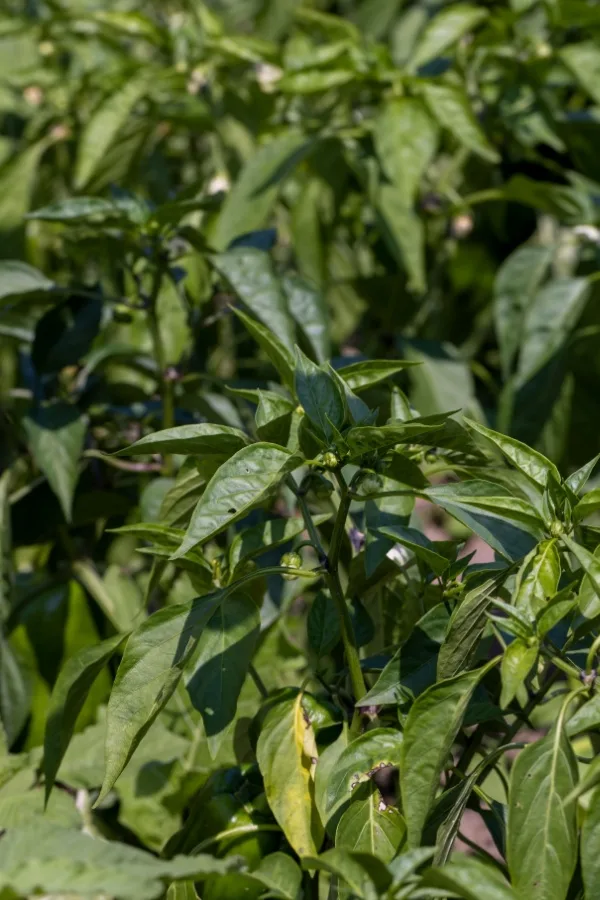Check Out the Best Fertilizers for Peppers and Enhance Your Garden's Return
Check Out the Best Fertilizers for Peppers and Enhance Your Garden's Return
Blog Article
Organic Vs. Synthetic Fertilizers: Which Is Best for Nurturing Healthy Pepper Plants?
In the world of supporting healthy pepper plants, the choice in between organic and synthetic plant foods stands as an essential choice with significant effects. While both choices objective to give important nutrients to support plant growth, the subtleties of their effect on the soil, plant wellness, and the atmosphere stimulate a discussion that mirrors throughout the gardening community. Recognizing the unique advantages and potential mistakes of each fertilizer kind is crucial for pepper farmers looking for to maximize their yields while preserving an eco-conscious and sustainable technique.
Advantages of Organic Fertilizers
Organic plant foods provide an environmentally-friendly and lasting approach to nourishing pepper plants, offering crucial nutrients without the use of artificial chemicals. These all-natural fertilizers are originated from organic sources such as garden compost, manure, bone meal, and seaweed, promoting soil health and wellness and biodiversity. Unlike synthetic fertilizers, natural alternatives launch nutrients gradually, ensuring a constant and well balanced supply for pepper plants to grow.
One considerable advantage of natural plant foods is their capability to improve dirt framework and water retention. By improving dirt health, organic plant foods advertise valuable microbial activity, which assists in nutrient uptake by pepper plants. In addition, natural plant foods decrease the danger of chemical run-off, safeguarding water sources from contamination and securing the atmosphere.
Additionally, organic plant foods add to long-lasting soil fertility by promoting the development of useful dirt microorganisms. These microorganisms help damage down raw material, launching nutrients in a form that is easily obtainable to pepper plants. best fertilizers for peppers. By promoting a healthy soil ecological community, organic fertilizers sustain sustainable pepper growing practices that profit both plants and the atmosphere
Disadvantages of Synthetic Fertilizers
Synthetic plant foods, in comparison to their natural counterparts, position different disadvantages when made use of to nurture pepper plants, affecting both plant health and wellness and ecological sustainability. One significant disadvantage of artificial fertilizers is their propensity to leach nutrients from the dirt promptly. This rapid leaching can bring about nutrient inequalities in the soil, creating plants to suffer from toxicities or shortages. Additionally, synthetic plant foods can hurt advantageous dirt microorganisms, such as earthworms and valuable microorganisms, disrupting the dirt community's equilibrium.
In addition, the overuse of artificial plant foods can add to water air pollution. Excess plant foods not absorbed by plants can remove into water bodies, resulting in eutrophication, where algae blossoms deplete oxygen levels in the water, hurting marine life. Synthetic fertilizers are normally acquired from non-renewable resources, such as fossil gas, contributing to carbon emissions and environmental destruction during their production.
Nutrient Absorption Contrast
Efficient nutrient absorption plays a critical function in the general health and development of pepper plants. When contrasting artificial and natural plant foods in regards to nutrient absorption, natural fertilizers have the advantage of giving a more well balanced and slow-release source of nutrients (best fertilizers for try these out peppers). Organic fertilizers have a selection of macro and trace elements that are not only helpful for the plants however also advertise healthy soil microbial task, which aids in nutrient uptake. On the various other hand, synthetic plant foods commonly offer a quick launch of nutrients, which can cause leaching and drainage, resulting in lower nutrient absorption prices by the plants.
Moreover, natural plant foods boost soil framework and water retention capacity, enabling pepper plants to gain access to nutrients much more successfully. This improved dirt top quality helps with root Read Full Article advancement, allowing much better nutrient absorption. Synthetic plant foods, although originally improving plant growth because of their high nutrient concentrations, may impede long-lasting nutrient absorption by degrading dirt wellness with time.
Ecological Effect Considerations

On the various other hand, synthetic fertilizers, although often more focused and quickly readily available to plants, can have harmful effects on the setting otherwise applied properly (best fertilizers for peppers). Their production requires high power inputs, resulting in greenhouse gas exhausts and contributing to environment adjustment. In addition, the overflow of excess artificial plant foods can infect water sources, causing eutrophication and harming aquatic environments.
Ideal Plant Food Practices for Peppers
To attain this, it is necessary to adhere to best fertilizer practices customized to the details demands of pepper plants. One important technique is to carry out a soil examination before using any kind of plant foods.
Another essential method is to feed pepper plants at the correct time. Commonly, peppers benefit from getting plant food at planting and after that again when they begin to flower. Over-fertilizing can cause nutrition imbalances and hurt the plants, so it is vital to follow suggested application rates.
Furthermore, picking a balanced fertilizer with an NPK proportion that suits pepper plants' requirements is fundamental. Organic fertilizers, such as compost or try this manure, can be excellent selections as they launch nutrients gradually and improve soil structure over time. However, synthetic plant foods can give a quick nutrient boost when needed. Eventually, combining natural and synthetic plant foods deliberately can aid support healthy and balanced pepper plants while lessening ecological effect.
Final Thought

Organic plant foods use a lasting and environmentally-friendly strategy to nourishing pepper plants, offering crucial nutrients without the use of artificial chemicals. Unlike artificial fertilizers, organic alternatives release nutrients slowly, guaranteeing a well balanced and steady supply for pepper plants to grow.
Synthetic plant foods, in comparison to their natural equivalents, present different drawbacks when made use of to nourish pepper plants, impacting both plant wellness and environmental sustainability. When comparing natural and artificial fertilizers in terms of nutrient absorption, natural plant foods have the advantage of supplying an extra balanced and slow-release source of nutrients.Moreover, natural fertilizers improve dirt framework and water retention ability, allowing pepper plants to accessibility nutrients more successfully.
Report this page